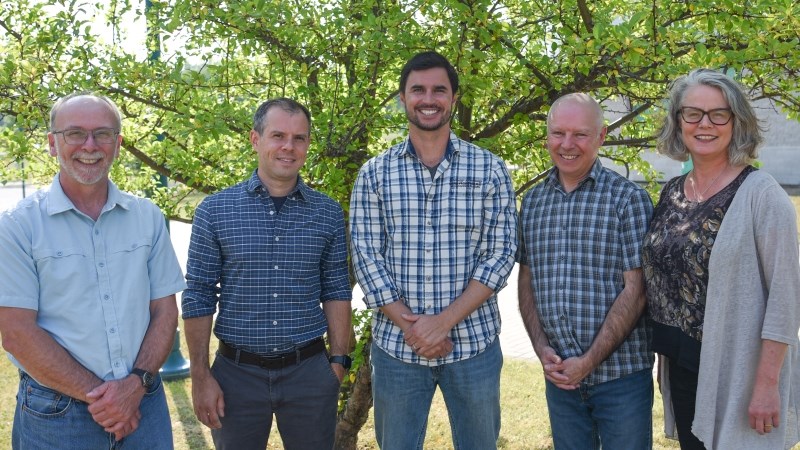A group of UNBC researchers has secured $800,000 in funding to continue exploring important issues surrounding the Nechako River Basin.
The Integrated Watershed Research Group has received a $400,000 grant from the Nechako Environmental Enhancement Fund and another $400,000 in matching funds from other sources for Phase 3 of an interdisciplinary research project that began in 2014.
The research group includes Natural Sciences and Engineering Research Council of Canada/Rio Tinto Senior Industrial Research Chair in Climate Change and Water Security Dr. Stephen Déry, Ecosystem Science and Management Associate Professor Dr. Eduardo Martins, Forest Renewal BC Endowed Chair in Landscape Ecology Dr. Phil Owens, and School of Health Sciences and Northern Medical Program Professor Dr. Margot Parkes.
IWRG’s earlier research examined a range of issues: from analyzing the impact of observed climate change on water temperature and streamflow volumes in the Nechako River; to studying the impact of land use change and wildfires on river sediment sources and sediment quality; to the development and use of a web-based portal by watershed partners highlighting overlapping environment, community and health issues and encouraging integrative approaches to decision-making about the watershed.
“Our research and events such as the 2021 summer heat dome and autumn land-falling atmospheric rivers experienced in B.C. and the 2023 summer drought conditions and associated wildfire activity are showing us the global climate crisis is a cross-cutting driver of watershed change,” says Dr. Stephen Déry.
“Building knowledge helps build resilience,” said Dr. Margot Parkes. “The overarching goal of this research project is to strengthen preparedness for integrative responses to climate, water and community connections in the Nechako Watershed.”
The Nechako Environmental Enhancement Fund was established as part of the BC/Alcan 1997 Agreement between the Province of BC and Rio Tinto. As part of the agreement, Rio Tinto has committed to contributing up to $50 million to the NEEF on a matching dollar basis.



